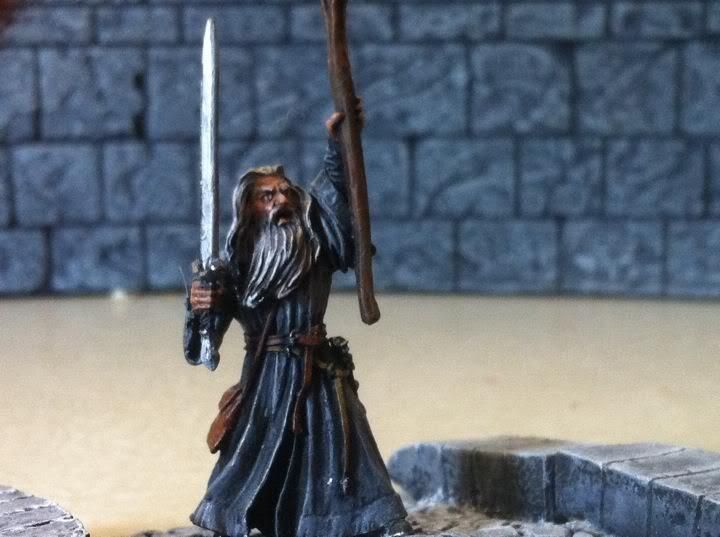Hilbert wrote:
The hobbit follows the plot of Beowulf
(Not starting a flame…just a discussion…) I don’t think I can agree with that, having read each many times.
The Hobbit starts with an unsure hero that is brought along on a quest larger than he may ever have aspired to on his own. He experiences personal growth as the tale goes on but always remains a giving, kind heart that tries to avoid conflict, going so far as the giving of the Arkenstone and avoiding the great war at the end, and leaves with only what little he feels he needs.
Beowulf, on the other hand, is a great leader of his people and a mighty warrior. He travels across the sea to a distant land for the single purpose of proving his greatness by defeating a monster plaguing another kingdom. He is boastful, arrogant and prideful and changes very little over the course of the story, even to his death at the end.
There are absolutely elements of Beowulf that are pulled as either a very-close theme or even directly lifted. This is especially evident in Rohan, where many of the names and speech are thickly Anglo-Saxon influenced. The name of Theoden’s great hall is Meduseld which in Anglo-Saxon means Mead Hall, the name given to Hrothgar’s Heorot in Beowulf, many of the names of the characters are either derived from A-S words (some even lifted right from the poem), and several key encounters, speeches and descriptions are pulled from the epic poem. Tolkien opened his lectures each year by quoting the first several lines from Beowulf in their original A-S in grand method, which tales say intimidated many students right out of the class.
Tolkien was a professor of language and a great scholar of the earliest myths and legends. He pulled many of these together as inspiration when writing his stories, much as modern fiction writers are often influenced by Tolkien himself (regardless if they want to admit it or not). There have been several books and college courses that deal with little more than likely source materials and influences for Tolkien, and I have never seen one that does not tie Beowulf perhaps most closely to his themes than most other sources. My love of Tolkien was probably a reason I picked up a translation of Beowulf early in my life and my love of that epic poem may be a reason I have found myself drawn more strongly to Rohan than any other culture in the stories.
I’m not trying to say “you’re wrong” in any sense of the phrase. Simply that I haven’t seen the Hobbit story having much thematic influence from Beowulf. But like many such discussions much of it is based on opinion and perspective. I would be very interested in knowing some of what you see in the link between the stories. It is always good to hear such things so that with my next reading I can see the stories with a little different perspective myself.
 Top
Top Top
Top Top
Top Top
Top Top
Top Top
Top Top
Top Top
Top Top
Top Top
Top Top
Top Top
Top Top
Top Top
Top





